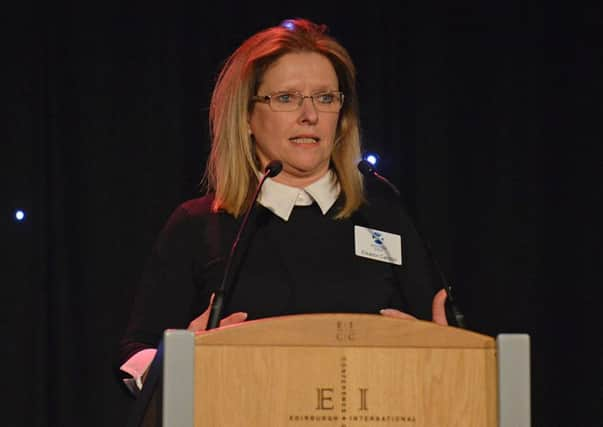Comment: Time to bring '˜nomads' into Scottish golf fold


Previously described as “casual golfers”, this particular group is often referred to these days as “golf’s biggest problem”, yet the reality is they can be part of the solution if everyone is prepared to accept their presence has to be embraced.
Let’s face it. The days of every single person who picks up a golf club for the first time feeling compelled to become a club member are long gone. Scotland still has more than 200,000 golf club members – the most of any sport in the country – but, as more than 500 delegates were told in the capital at the weekend, that figure has dropped by 50,000 over the past decade and the decline shows no signs of slowing.
Advertisement
Hide AdAdvertisement
Hide AdLike it or not, the game at club level is in deep trouble and, although perhaps fewer doors have slammed shut than we might have expected so far, it is surely a ticking timebomb. Especially so when you consider that, for the size of the country, more than 600 clubs is far too many.
Quite frankly, that number has to reduce – and quite significantly, too – for the club scene to have any chance of thriving again. However, with an estimated 750,000 nomadic golfers out there, it should certainly not be all doom and gloom for the sport, as perhaps was portrayed at that inaugural national conference organised by Scottish Golf.
During a discussion about those casual golfers, you actually got the feeling the debate was about lepers. No wonder that one delegate said the attitude about the nomads “scares me” before making the most important point of all when it comes to this particular group: “It is their choice not to be a member of a club.”
The reasons for that are simple. They either can’t afford to or can’t commit to playing 40 rounds per year, which is now the requirement for someone to be able to justify the cost of a membership. That’s not to say, though, that they don’t want to play golf and this is where real thought has to be given to ensuring they contribute in some way to clubs being able to be assured of a healthier future.
Should they pay a tax on top of their green fee? Perhaps, though one delegate said he feared that in Fife, for instance, that might drive nomadic golfers to municipal courses in the Kingdom which, by all accounts, are already doing well these days as habits have started to change.
“Any barrier put against nomadic golfers” would be a terrible decision, claimed someone else in the hall, and he is right, of course. “They are here to stay and we have to work with it,” piped up another delegate and he, too, hit the nail on the head on this particular subject.
Yes, golf needs more women playing the game at a time when they make up less than 14 per cent of the total club membership in Scotland, but administrators – both at national and club level – should also be looking at ways of getting more out of those nomadic golfers and certainly not treating them as a threat to the lifeblood of the game.
Let’s try to make the most of the fact the game is still appealing, whether it’s to someone who plays five times a week or, alternatively, someone who only picks up a club once every three months. For golf to have 750,000 people who occasionally dabble in the game has got to be something positive and it is certainly encouraging that, contrary to what some might believe, Scottish Golf doesn’t appear as though it is being run by a bunch of muppets.
Advertisement
Hide AdAdvertisement
Hide AdCredit to the much-maligned chair of the governing body, Eleanor Cannon, for showing humility when humility was most certainly required at Saturday’s national conference, where her fellow non-executive directors, notably Stewart Darling (participation) and Malcolm Kpedekpo (finance), used first public appearances in their roles to deliver assurance that they definitely aren’t out of their depth.
What the weekend event seemed to show that there is a willingness from everyone involved in Scottish golf to try to move forward for the good of the game. Make no mistake, it will be challenging and will also involve members contributing a bit more than they currently do through an affiliation fee. But, if we can come up with something that ensures the unattached nomads are also contributing something, then perhaps that might be easier for those members to swallow.